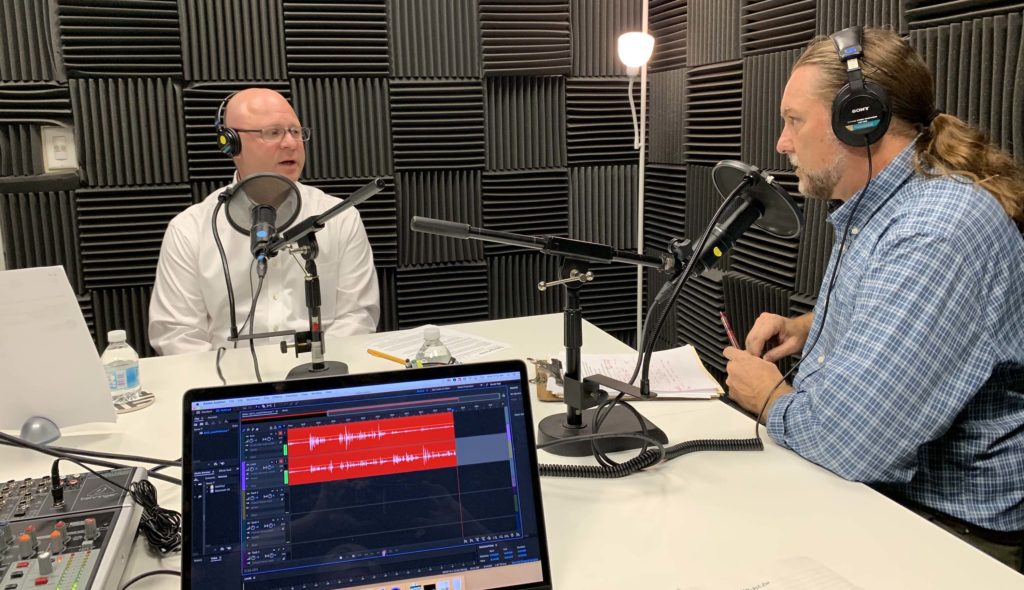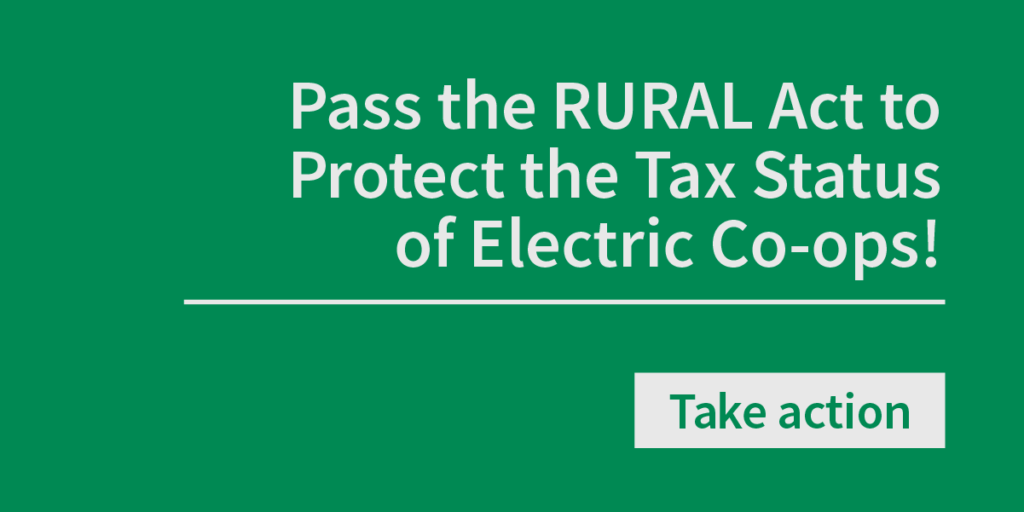
Electric cooperatives were built as not-for-profit entities in order to serve their members, and as such, they rely on their tax-exempt status to keep power affordable. But that status has been threatened by an unintended consequence of the 2017 federal tax law.

The new law states that co-ops that accept government grants—to help cover costs such as rebuilding after natural disasters or bringing broadband to rural communities—can lose their tax-exempt status if those grants amount to more than 15% of their overall revenue. NRECA and its member co-ops are mounting a major grassroots campaign to get Congress to pass the RURAL Act, which would address the problem.
In this episode of Along Those Lines, hear from Louis Finkel, NRECA’s senior vice president for government relations, on why this legislative fix is so vital for co-ops. We’ll also get perspectives from two co-op leaders facing this tax dilemma firsthand: Tim Johnson of Otsego Electric Cooperative in New York and Scott Reimer of Federated Electric Cooperative in Minnesota.
Listen to the episode below:
You can also listen and subscribe to Along Those Lines on your preferred podcast service:
Apple Podcasts | Google Podcasts | Stitcher | Spotify | YouTube
Related Content:
Q&A: Senate’s Lead RURAL Act Sponsors Discuss Their Strategy for Passage
Q&A: RURAL Act’s Lead House Sponsors Say Co-op Voices Are Key to Bill’s Success
RURAL Act: Why Popular, Bipartisan Legislation Can Face Hurdles in Congress
As Majority of House Signs On to RURAL Act, Lead Sponsors Press for Vote
Co-op Voices, Part 1: How Losing Tax-Exempt Status Would Hurt Rural Residents
Co-op Voices, Part 2: CEOs Discuss Impacts of Tax Law Glitch for Members
Co-op CEO to Congress: Help Expand Rural Broadband by Passing RURAL Act
Matheson: ‘If We All Stand Up,’ Co-ops Can Save Tax-Exempt Status
Co-op Advocacy Needed to Move Vital Tax Fix in Congress
Find out more about NRECA’s podcast. Questions or suggestions? Email us at AlongThoseLines@nreca.coop.
